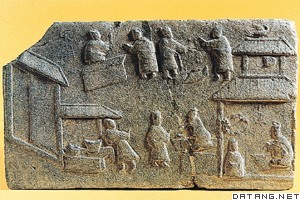1) Insurance Supermarket


保险超市
1.
Pondering over Insurance Supermarket s Development in Our Country;


我国保险超市的发展现状和出路
2.
Facing to the sharp competition of insurance business, the company creates a new marketing mode named "insurance supermarket".
在这种背景下,上海合泰保险代理公司作为一家新成立的公司,面对竞争激烈的保险行业,提出了发展“保险超市”的新模式。
2) insurance market


保险市场
1.
Analysis and proper mode of agricultural disaster insurance market in China;


我国农业自然灾害保险市场分析及其合理模式
2.
An Analysis of the Developing Trend in Our Country s Insurance Market in the Coming Ten Years;
未来十年我国保险市场发展趋势分析
3) market insurance


市场保险
1.
Expected Utility Thoery predicts that market insurance and self-insurance are substitutes,whilst surprisingly,market insurance and self-protection could be complements.
传统的预期效用理论认为市场保险与自我保险是可以相互替代的,而市场保险与自我保障却是相互补偿的。
5) over-insurance


超额保险
1.
China\'s over-insurance system does not distinguish between the causes ofover-insurance and apply different legal effect ,but all according to the provisions ofArticle 40th of "Insurance Act" only the over part invalid, resulting in seriousloopholes in the over-insurance system of China, can not effectively guard againstmalicious behavior of over-insurance and the occurrence of moral hazard.
我国的超额保险制度未区分超额保险产生的原因并适用不同的法律效果,而是一律依《保险法》第四十条第二款的规定仅超过的部分无效,致使我国的超额保险制度存在严重的漏洞,不能有效地防范恶意超额保险行为的发生及道德危险的发生。
6) over insurance


超额保险
1.
When analyzing over insurance,we must follow the basic concept of insurance law,start with the declaration of will of the parties,distinguish the different reasons of over insurance and make different regulations of them.
超额保险破坏了保险的根本原则———“损害补偿原则”,故为法所不许。
补充资料:市
| 市 中国古代进行商品交易的固定场所。秦汉时,在京都、郡、国乃至大县城内,多有官府在指定地区设立并由官府管理的市,与居民所住的里或坊严格分开。市周围有垣墙,交易者只能由市门出入,以此限制市外交易。市门按时开闭。市中有市楼,又称亭、旗亭或市亭,管理市的官署即设于此。为了便于经营管理,市内店铺、摊贩按经营商品种类分别排列,称为列、肆、次、列肆、市肆或市列。列肆之间的通道称为隧。列肆之后还有存放货物的仓库,称为店。在市中营业的除私商外,政府也派人来出售官营手工业产品及政府所掌握的其他物资。封建政府对市的管理很严格。主管市的官吏,长安东西市为市令,其他城市为市长。市门有监门卒把守。关于市中交易和官吏的职责,秦、汉法律中的《金布律》、《关市律》等有很详细的规定。此外,汉代在边境关隘还设有关市,亦称胡市,从事对边疆少数民族的贸易。驻军之处有时亦立军市。在小县、县以下的邑和农村中,没有垣墙楼屋的定期集市比战国时期增多,以赶集方式进行交易活动。这种市集是农村之间以至城乡之间物资交换的会合点,在封建社会是一种长期存在的交易形式。
|
说明:补充资料仅用于学习参考,请勿用于其它任何用途。
参考词条
